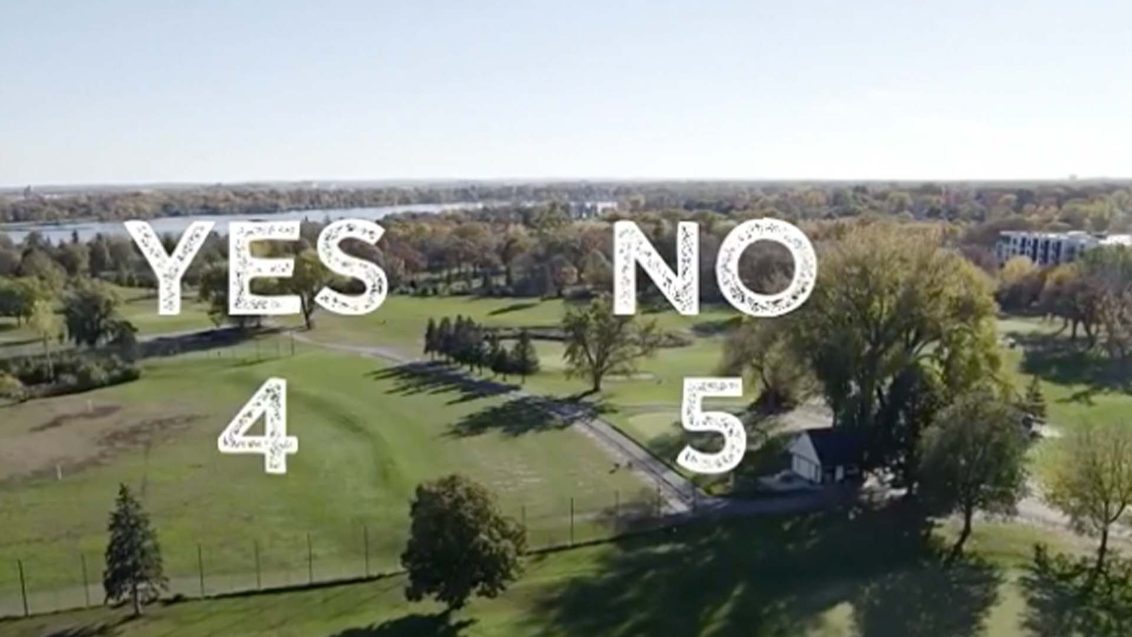Global communities fight to save golf courses

“The ward is effectively turning into concrete.” “Folks are kinda like, ‘I just want a park.’”
Whether it’s Maidenhead in the UK or Minneapolis, Minnesota, councilors and commissioners are fully tuned into the bitter battle for urban land space.
Quarrelling over land has become a huge talking point since the turn of the decade.
Communities and their elected representatives, while understanding the need for affordable housing, are helping in the fight to save green spaces and golf courses.
In Oakville, Ontario, Municipal Affairs and Housing Minister Steve Clark stepped in to help save Glen Abbey Golf Course, host venue of 30 Canadian Opens including in 2000, when Tiger Woods won after clinching three majors that season.
The course’s owner pushed for years to build more than 3,000 homes despite opposition, while the council unanimously rejected plans to transform the course into a housing subdivision, parkland and office buildings in 2017, designating Glen Abbey a heritage site.
Recently Syngenta spoke to Goat Hill Park custodian John Ashworth about how the facility was saved – as part of the feature Golf Under Threat, with research to show how by 2050 the world’s urban population is set to double to 8.5billion, meaning seven in 10 people will live in cities.
The way things are going for Maidenhead Golf Club to the west of London near Heathrow Airport, with 2,600 homes (30% affordable), schools and a local center in the pipeline, construction would spell an end to the 125-year-old course.
Councilor Geoff Hill said: “Oldfield ward is effectively turning into concrete. When I held this ward during my first two-terms, I also held the town center as well, but development is so prolific that my ward got cut in half because so many dwellings are being built.
“The amount of greenspace we’re losing is horrific,” he said, with a resident adding: “The golf club – this is our Amazon, it’s on our doorstep and we should protect it for leisure and biodiversity.”
Lehman and Woosnam support
Protecting residents’ mental health has been a big factor in Minneapolis, too.
Minneapolis Park and Recreation Board At-Large Commissioner Tom Olsen said urban green spaces were front and center of the population’s mind now, with Hiawatha Golf Course’s redesign on the debating table.
The course is of special significance to the black community, with Hiawatha the first course in the area to allow black players in 1938.
The course started as a nine-hole layout before becoming 18 holes, yet under proposals currently stalling, nine holes will be lost to make way for the revamping of drainage and a refreshed community space with a restaurant, space for pollinators, wetlands, a dog patio, bike trails and cross-country ski trails with manufactured snow during the winter.
“Tiger Woods is playing the Masters right now, in a big part because of what happened at Hiawatha,” said former world number one and Minnesota native Tom Lehman in April, at a Minneapolis Park and Recreation Board meeting.
Near 2023 Open Championship venue Hoylake, Brackenwood Golf Club was closed in April, the council citing it needed to make savings to balance its budget.
Vandals then took to the course, prompting campaigners and former world number one Ian Woosnam to step in, and the course could reopen.
"If we were lucky enough to win the bid it will involve free golf for under 18s, value for money membership and pay as you play,” said Tony Minshall, who runs RM Estates Ltd, the parent company of the Ian Woosnam Golf Academy and Golf Courses.
